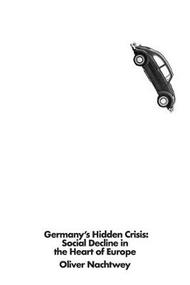 Adam Tooze in the LRB:
Adam Tooze in the LRB:
This year is both the 70th anniversary of the formation of the Federal Republic of Germany and the 30th anniversary of the fall of the Berlin Wall. For years Germany has been thought of as both the pace-setter and the anchor of European politics. But in the summer of 2019, the political scene in Berlin is in greater flux than at any time since the Second World War.
The right-wing Alternative für Deutschland, founded in April 2013 in reaction to the Eurozone crisis, surged into the Bundestag in the 2017 election with 12.6 per cent of the vote. The Social Democratic Party scored only 20.5 per cent – a defeat of historic proportions. The European elections on 26 May delivered an even more crushing blow, as the SPD collapsed to only 15.8 per cent. In current polls the party is trailing in fourth place with barely more than 10 per cent of the popular vote. Twenty years ago, in their last decisive electoral victory, they managed 40 per cent. Might the SPD be about to follow the French Socialist party into oblivion?
The opening of this confusing new era in German politics is commonly dated to 2015. Russia’s annexation of Crimea divided both the German public and the political class. Germany’s identity in Europe was put in question by the bruising confrontation with the left-wing Syriza government in Greece: was Germany now the Eurozone’s brutal enforcer, or a cash cow to be milked by feckless Southerners? But it was the escalating refugee crisis, culminating in Angela Merkel’s decision to open the borders over the weekend of 5 and 6 September 2015, that really split the country.
More here.
